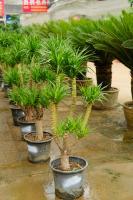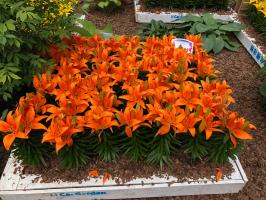Do Hanging Tomato Plants Really Work?
Tomatoes are a staple in many households and people try various methods to grow them effectively. One of the recent approaches is to grow them in hanging pots or baskets. But do hanging tomato plants really work? Let's find out.
The Pros of Hanging Tomato Plants
One of the significant benefits of hanging tomato plants is the efficient use of space. Vertical gardening is an excellent way for those who have limited garden space. Also, it is easy to manage the plants, and taking care of them is relatively straightforward.
Another advantage is that hanging tomatoes are less likely to be attacked by pests or diseases than tomatoes growing in the ground. Pests and diseases thrive in moist conditions, and hanging tomato plants face less threat. This means the plants can be grown organically, without the use of pesticides.
Furthermore, these plants can help save water, as water can trickle down from the top of the plant and be absorbed by the roots. Hanging tomato plants also allow for better air circulation around the plant which can reduce the risks of disease or fungus growth.
The Cons of Hanging Tomato Plants
While hanging tomato plants are becoming popular, they have their disadvantages. Hanging plants may dry out quickly, especially in hot and dry weather. This means you need to be more vigilant about watering and check the soil moisture frequently.
Another issue is the weight of the tomato plant. As the plant grows, it keeps getting heavier, and this can stress the root system or the hanging apparatus. Some hanging systems have limits on the weight, so you need to make sure your plant's weight won't exceed the limit of your hanging system.
Lastly, hanging tomato plants require more maintenance than traditional farming. Pruning and feeding are necessary to keep the plant healthy and productive. This can be time-consuming for those who have a busy schedule.
Conclusion
In summary, hanging tomato plants can be a viable option for small-space gardening, and they offer some advantages. If you have some space under sheltered spots and want to enjoy a bountiful harvest of tomatoes, hanging tomato plants can be a good solution. Just make sure you can take the necessary steps to ensure the plant stays healthy, and the hanging system can support its growth.

 how many times do yo...
how many times do yo... how many planted tre...
how many planted tre... how many pine trees ...
how many pine trees ... how many pecan trees...
how many pecan trees... how many plants comp...
how many plants comp... how many plants can ...
how many plants can ... how many plants and ...
how many plants and ... how many pepper plan...
how many pepper plan...






























